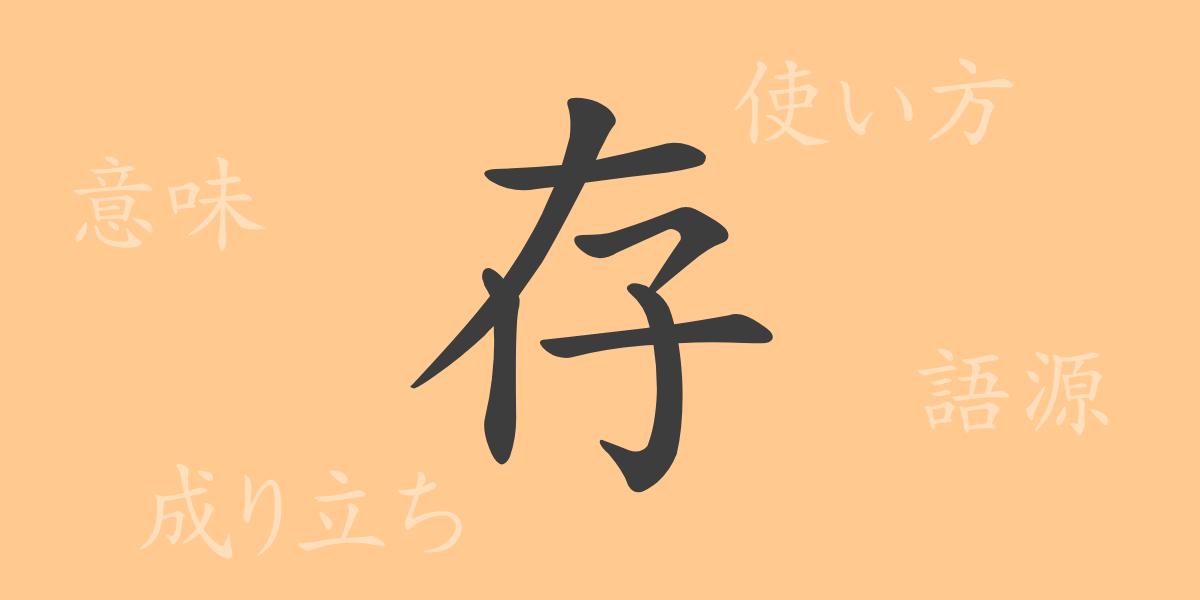The beauty of the Japanese language is manifested in its characters, each bearing profound meanings and histories. “存” (ソン)(ゾン)(そんじる)(たもつ)(ながらえる) (son)(zon)(sonjiru)(tamotsu)(nagaraeru) is one such frequently used Kanji in everyday life, embodying deep significance within the Japanese lifestyle. This article delves into the charm of “存”, exploring its origins, contemporary usage, and extending to idioms and proverbs that enrich its narrative.
Origin of “存” (son)
The Kanji “存” originated from ancient Chinese pictographs, initially depicting the growth of a child. Over time, its meaning evolved to signify ‘to exist,’ ‘to live,’ and the continuity of life or maintenance of a state. It also acquired the nuance of cherishing with care, and today it is utilized across various contexts in modern Japanese.
Meaning and Usage of “存” (son)
“存” carries meanings such as ‘to exist,’ ‘to live,’ and ‘to keep in mind.’ In business, it is employed in respectful phrases like “ご存知” (ごぞんじ) (gozonji) ‘as you know,’ expressing reverence towards another. It is also used to express concern for someone’s health or safety, as in “お体を大切に存じます” (おからだをたいせつにぞんじます) (okarada wo taisetsu ni sonjimasu) ‘I regard your health with care.’
Readings, Stroke Count, and Radical of “存” (son)
The Kanji “存” is distinctive in its form and pronunciation.
- Readings: On’yomi “ソン” (son), “ゾン” (zon), Kun’yomi “ぞんじる” (sonjiru), “たもつ” (tamotsu), “ながらえる” (nagaraeru)
- Stroke Count: 6 strokes
- Radical: The radical is “子” (こ) (ko), although “存” itself can function as a radical.
Idioms, Phrases, and Proverbs Using “存” (son) and Their Meanings
Idioms and phrases containing “存” are abundant in Japanese. For instance, “存分に” (ぞんぶんに) (zonbun ni) ‘to one’s heart’s content’ signifies acting until one’s desires are fully satisfied, “存続” (そんぞく) (sonzoku) means something continues over time, and “存知” (ぞんじ) (zonji) is used for ‘to know.’ These phrases are crucial in everyday conversation, literature, and business documents.
Conclusion on “存” (son)
This exploration focused on the Kanji “存”, revealing its origins, meanings, usage, and related idioms. The character encapsulates fundamental human values like life continuity, existence acknowledgment, and considerate mindfulness. Understanding “存” deepens our grasp of Japan’s rich cultural backdrop, reminding us of the intricate meanings embedded within this evocative character whenever we encounter it.

























